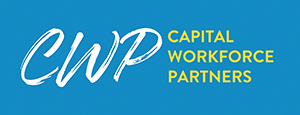COLLEGE/UNIVERSITY PARTNERSHIP –
This model aligns career development activities with a specific college or university to transition youth from successful high school completion to a post-secondary program at a regional college or university. Many college “bridge” programs incorporate training in college preparation skills (test taking, time management, math/language remediation, etc.) with an onsite college experience at a local campus. The hallmarks of these programs are that they deliver career-focused academic preparation that develops students’ reading, writing and math skills simultaneously with preparation for post-secondary education. Coursework investigates themes in healthcare, business or the world of work in order to help improve students’ academic skills as well develop plans for careers and college.
Foundation programs include community college programs in health care and manufacturing.
CAREER-BASED CONTEXTUALIZED LEARNING –
This model integrates the essential basic skills of math, reading and language that are needed to progress in education or employment with the terminology and situations associated with a particular occupation (i.e. allied health, manufacturing, construction/green technology, etc.). Through contextual learning approaches, students learn by understanding the relationship of an abstract idea to its practical application. For example, to teach algebra concepts in a real-work setting, students might be asked to analyze the depth, width and space in a house that needs to be weatherized for energy efficiency. In contextual learning environments, students experience the concepts being taught, and are able to practice and apply the learning in either a simulated or actual work settings.
Foundation programs include contextualized learning programs in construction/energy.
Additional Information
Learning strategies for contextualized learning include:
- Contextualized basic skills instruction uses industry and occupational knowledge to support the learning of basic reading, math and language skills.
- Contextualized education and training allows students to gain literacy and occupational skills simultaneously with attainment of technical skills, certificates and certifications and postsecondary degrees while reinforcing students’ basic skills development.
Instruction models for contextualized learning include sequential, concurrent, coordinated, and integrated.
